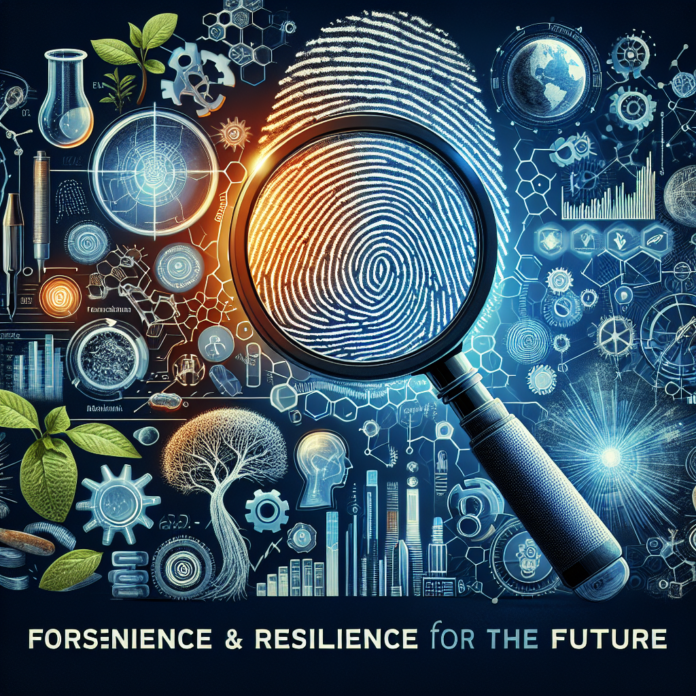Forensic Strategies for Enhanced Resilience
Forensic Insights for Future Resilience
In an era where understanding and mitigating the impacts of various crises is paramount, the field of forensic science plays a crucial role. This article explores how forensic insights can enhance resilience in various sectors, particularly in disaster response, crime investigation, and public health.
The Role of Forensics in Disaster Response
Forensic science is often associated with criminal investigations, but its principles can be applied to disaster response and recovery. By analyzing evidence from natural disasters—like earthquakes, floods, and wildfires—scientists can better understand the causes and effects of these events. This information is vital for improving building codes, evacuation plans, and emergency response strategies.
For instance, forensic analysis of structural failures during an earthquake can reveal design flaws or construction inadequacies. Lessons learned from such analyses can inform future architectural practices, ultimately leading to more resilient infrastructure.
Enhancing Crime Investigation Techniques
The integration of advanced forensic methods has revolutionized crime scene investigations. Techniques such as DNA analysis, digital forensics, and toxicology are not only helping to solve crimes more efficiently but also preventing future offenses. By understanding criminal behavior through forensic profiling, law enforcement agencies can implement targeted prevention strategies.
Moreover, the use of forensic data analytics allows for the identification of crime patterns, enabling police departments to allocate resources more effectively and deploy preventive measures in high-risk areas.
Public Health and Forensic Science
Forensic science is also making strides in public health, particularly in the analysis of disease outbreaks and environmental hazards. Forensic epidemiology utilizes methods from forensic science to investigate and understand the spread of diseases. This approach is especially relevant in the wake of global health crises, where rapid response is crucial.
For example, during the COVID-19 pandemic, forensic techniques were employed to track transmission patterns and identify hotspots. By analyzing data from various sources, public health officials could implement timely interventions and allocate resources where they were needed most.
Future Implications of Forensic Insights
As we look ahead, the potential applications of forensic science continue to expand. Emerging technologies, such as artificial intelligence and machine learning, are set to enhance forensic analysis, making it faster and more accurate. These advancements could lead to breakthroughs in various fields, including environmental science, cybersecurity, and even social sciences.
The collaboration between forensic scientists and other disciplines will be essential in creating comprehensive strategies that address complex challenges. By fostering interdisciplinary partnerships, communities can build resilience against future threats—whether they be natural disasters, criminal activities, or public health emergencies.
In conclusion, the integration of forensic insights across different sectors is vital for enhancing resilience. By learning from past events and utilizing advanced technologies, societies can better prepare for and respond to the challenges of tomorrow.

